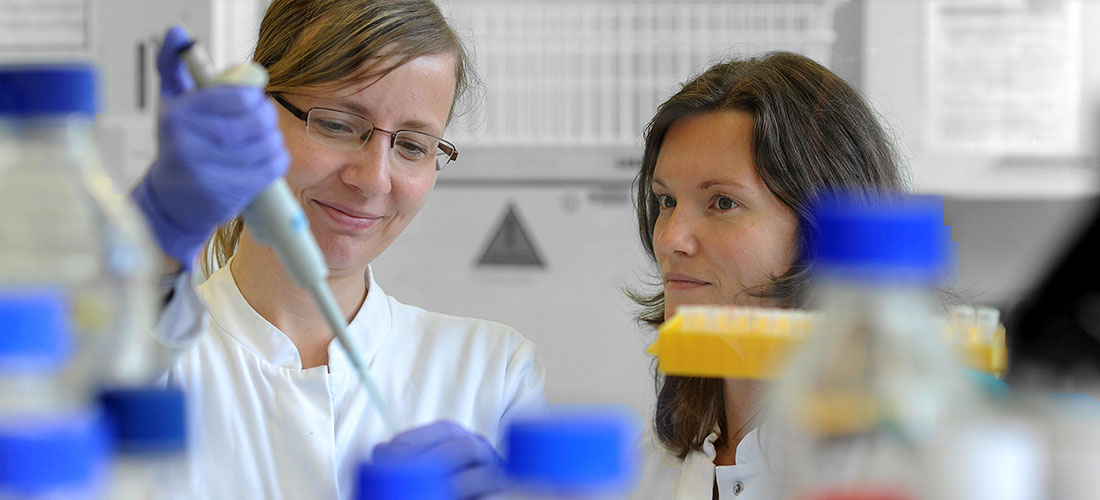C05: Spontaneous and treatment-induced T cell responses against neuroblastoma
Current adoptive T cell therapy approaches for neuroblastoma target tumor-associated antigens using chimeric antigen receptor (CAR) T cells. To date, their efficacy is limited by several immune escape mechanisms that develop during disease evolution and dose-limiting off-target side effects in normal tissues. Project C05 takes an alternative approach by targeting neuroblastoma with TCR gene therapy, and, to do this, first addresses essential mechanistic knowledge gaps in how antigen recognition dysfunctions in the high-risk molecular subtype of MYCN-amplified neuroblastoma. We hypothesize that targeting tumor stromal cells may be an effective approach to prevent tumor escape in patients with MYCN-amplified neuroblastoma, creating bystander killing to eradicate the tumor. This approach may be more successful against the tumor-suppressive microenvironment created by oncogenic MYCN activity. Project C05 aims to circumvent MYCN-associated immune escape and resistance mechanisms created during tumor evolution and enable long-lasting therapeutic success. Tasks 1-3 create in vivo strategies to compensate for dysfunctional antigen recognition in MYCN-amplified neuroblastoma. Task 1 analyzes the dysfunctional antigen processing machinery in mouse models of MYCN-driven neuroblastoma and compares results to human MYCN-amplified neuroblastomas in proteomics and immunopeptidomics data (through a cooperation with project A06) to determine MYCN-induced differences in antigen recognition. Tasks 2 and 3 explore the relationship between tumor-specific CD8+ and CD4+ T cells in the MYCN-driven tumor microenvironment. Task 2 investigates whether vaccination can alter the CD4+ T cell phenotype to obliterate CD8+ T cell-driven tolerance of MYCN-amplified cells, and Task 3 tests the efficacy of combining oncogene-specific CD8+ and CD4+ T cells as a new avenue to optimize immunotherapy targeting MYCN-amplified neuroblastoma. Task 4 explores targeting immunogenic neuroblastoma-specific antigens by T cell receptor (TCR)-engineered T cells to avoid off-target effects and the need for the target protein to be expressed on the tumor cell surface. We direct our alternative strategy particularly towards MYCN-driven neuroblastoma to capitalize on potential that TCR-engineered T cell therapies have to target differences created by MYCN oncogenic activity in tumor cells of this high-risk molecular neuroblastoma subtype.
PhD positions and place of work: 1
1 wet-lab (PI Gerald Willimsky, Charité Berlin)



